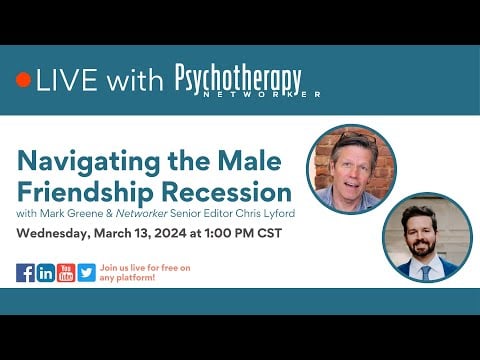Latest
Celebrating Sue Johnson
A Tribute to a Leading Force in the FieldPsychotherapy Networker honors the memory of Sue Johnson, EFT and EFIT pioneer, with highlights from her trailblazing career. Read more
So You Want to Be Your Client's Friend
Two Therapists Discuss a Clinical TabooJoin the conversation between two therapists as they discuss the longing for friendship in the therapy room. Read more
How to Know It's Narcissistic Abuse
Signs to Watch for in TherapyWatch this clip of Dr. Ramani explaining the signs of narcissistic abuse in a relationship and what it looks like in your therapy office. Read more
Building Rapport with Victims of Narcissistic Abuse
Don't Shame Your ClientsWatch this clip of Dr. Ramani explaining how to help your clients who are survivors of narcissistic and build trust. Read more
What is Betrayal Blindness?
Dr. Ramani on Survivors of Narcissistic AbuseWatch this clip of Dr. Ramani explaining what betrayal blindness looks like in relationships impacted by narcissistic abuse. Read more
Practice Tools: May/June 2024
The best from across the field of psychotherapy . . . on us!Download a worksheet from this month’s selection: Nancy Johnston's "The Clinician’s Codependency Treatment Workbook." Read more
Navigating the Male Friendship Recession
A Conversation with Mark GreeneWatch this interview with Mark Greene about why male friendships seem so difficult for men to get and how therapists can help. Read more
The Enduring Power of Bioenergetic Therapy
From Trauma to JoySometimes, transformational growth happens when we least expect it. Read more
Editor's Note: March/April 2024
The Loneliness EpidemicThis issue aims to explore what we can do about loneliness in our therapy offices—not just for kids and young adults, but for people at any stage of life Read more
A New Generation of Analysts
Why Depth Work Still WorksModern psychoanalysts are breaking free of old tropes, helping diverse clients and communities—and they still believe change takes time. Read more










